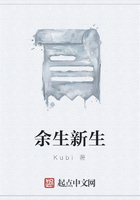Then, seeing their uncle laughing, they said to him--"If you will make a will, to whom will you leave the house?
"To Chiquon."
"And the quit rent of the Rue St. Denys?"
"To Chiquon."
"And the fief of Ville Parisis?"
"To Chiquon."
"But," said the captain, with his big voice, "everything then will be Chiquon's."
"No," replied the canon, smiling, "because I shall have made my will in proper form, the inheritance will be to the sharpest of you three; I am so near to the future, that I can therein see clearly your destinies."
And the wily canon cast upon Chiquon a glance full of malice, like a decoy bird would have thrown upon a little one to draw him into her net. The fire of his flaming eye enlightened the shepherd, who from that moment had his understanding and his ears all unfogged, and his brain open, like that of a maiden the day after her marriage. The procureur and the captain, taking these sayings for gospel prophecies, made their bow and went out from the house, quite perplexed at the absurd designs of the canon.
"What do you think of Chiquon?" said Pille-grue to Mau-cinge.
"I think, I think," said the soldier, growling, "that I think of hiding myself in the Rue d'Hierusalem, to put his head below his feet; he can pick it up again if he likes."
"Oh, oh!" said the procureur, "you have a way of wounding that is easily recognised, and people would say 'It's Cochegrue.' As for me, I thought to invite him to dinner, after which, we would play at putting ourselves in a sack in order to see, as they do at Court, who could walk best thus attired. Then having sewn him up, we could throw him into the Seine, at the same time begging him to swim."
"This must be well matured," replied the soldier.
"Oh! it's quite ripe," said the advocate. "The cousin gone to the devil, the heritage would then be between us two."
"I'm quite agreeable," said the fighter, "but we must stick as close together as the two legs of the same body, for if you are fine as silk, I as strong as steel, and daggers are always as good as traps--you hear that, my good brother."
"Yes," said the advocate, "the cause is heard--now shall it be the thread or the iron?"
"Eh? ventre de Dieu! is it then a king that we are going to settle?
For a ****** numskull of a shepherd are so many words necessary? Come!
20,000 francs out of the Heritage to the one of us who shall first cut him off: I'll say to him in good faith, 'Pick up your head.'"
"And I, 'Swim my friend,'" cried the advocate, laughing like the gap of a pourpoint.
And then they went to supper, the captain to his wench, and the advocate to the house of a jeweller's wife, of whom he was the lover.
Who was astonished? Chiquon! The poor shepherd heard the planning of his death, although the two cousins had walked in the parvis, and talked to each other as every one speaks at church when praying to God. So that Chiquon was much coupled to know if the words had come up or if his ears had gone down.
"Do you hear, Mister Canon?"
"Yes," said he, "I hear the wood crackling in the fire."
"Ho, ho!" replied Chiquon, "if I don't believe in the devil, I believe in St. Michael, my guardian angel; I go there where he calls me."
"Go, my child," said the canon, "and take care not to wet yourself, nor to get your head knocked off, for I think I hear more rain, and the beggars in the street are not always the most dangerous beggars."
At these words Chiquon was much astonished, and stared at the canon; found his manner gay, his eye sharp, and his feet crooked; but as he had to arrange matters concerning the death which menaced him, he thought to himself that he would always have leisure to admire the canon, or to cut his nails, and he trotted off quickly through the town, as a little woman trots towards her pleasure.
His two cousins having no presumption of the divinatory science, of which shepherds have had many passing attacks, had often talked before him of their secret goings on, counting him as nothing.
Now one evening, to amuse the canon, Pille-grue had recounted to him how had fallen in love with him a wife of a jeweller on whose head he had adjusted certain carved, burnished, sculptured, historical horns, fit for the brow of a prince. The good lady was to hear him, a right merry wench, quick at opportunities, giving an embrace while her husband was mounting the stairs, devouring the commodity as if she was swallowing a a strawberry, only thinking of love-******, always trifling and frisky, gay as an honest woman who lacks nothing, contenting her husband, who cherished her so much as he loved his own gullet; subtle as a perfume, so much so, that for five years she managed so well with his household affairs, and her own love affairs, that she had the reputation of a prudent woman, the confidence of her husband, the keys of the house, the purse, and all.
"And when do you play upon this gentle flute?" said the canon.
"Every evening and sometimes I stay all the night."
"But how?" said the canon, astonished.
"This is how. There is a room close to, a chest into which I get. When the good husband returns from his friend the draper's, where he goes to supper every evening, because often he helps the draper's wife in her work, my mistress pleads a slight illness, lets him go to bed alone, and comes to doctor her malady in the room where the chest is.
On the morrow, when my jeweller is at his forge, I depart, and as the house has one exit on to the bridge, and another into the street, I always come to the door when the husband is not, on the pretext of speaking to him of his suits, which commence joyfully and heartily, and I never let them come to an end. It is an income from cuckoldom, seeing that in the minor expenses and loyal costs of the proceedings, he spends as much as on the horses in his stable. He loves me well, as all good cuckolds should love the man who aids them, to plant, cultivate, water and dig the natural garden of Venus, and he does nothing without me."














